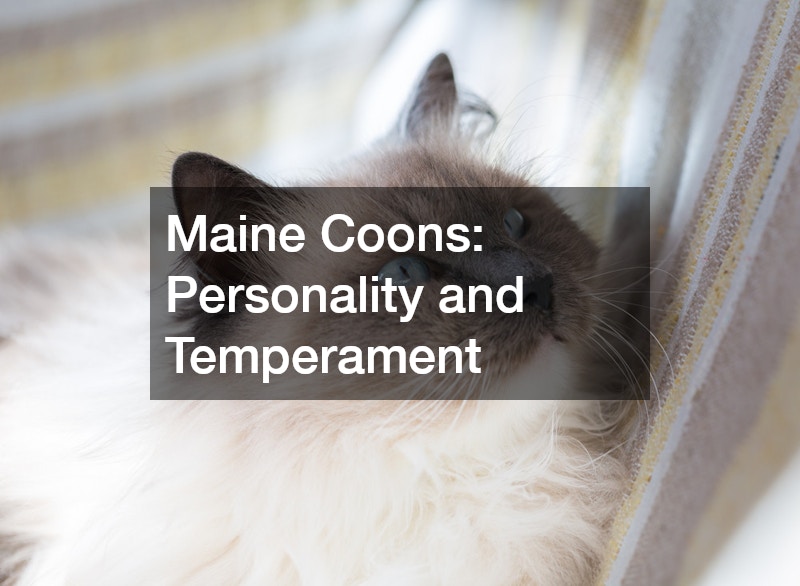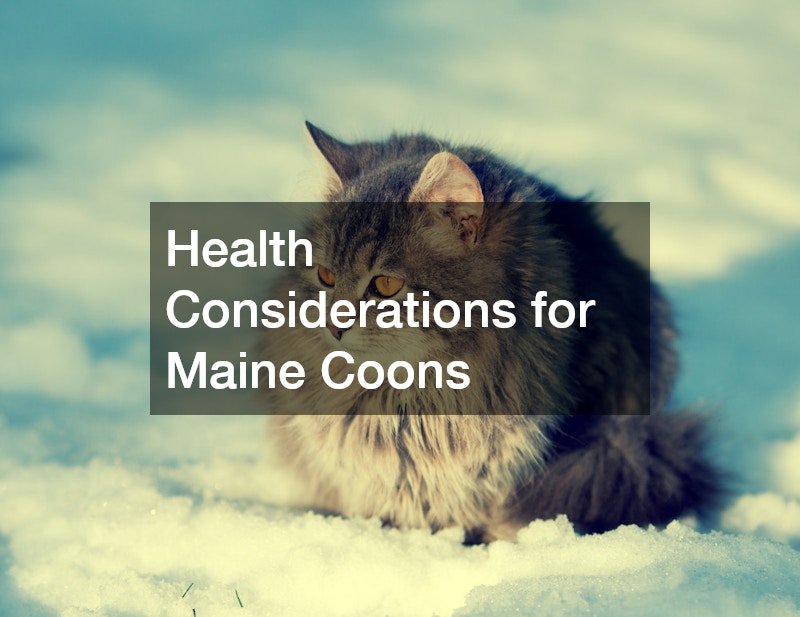Known for their impressive size, Maine Coons are one of the largest domesticated cat breeds. On average, a male Maine Coon can weigh up to 18 pounds or more, while females are slightly smaller. Their long, shaggy fur adds to the illusion of their large size, and they often boast tufted ears and bushy tails.
This breed is celebrated not just for its size but also for its distinctive appearance, including a mane-like fur around the neck, which gives them a lion-like look. Owning a Maine Coon requires space and resources, as their size demands appropriate accommodations and the occasional extra grooming to manage their luxurious coats.
Maine Coons come in a variety of colors and patterns, ranging from solid colors to tabby and calico. With their dense coats, these cats are well adapted to cold climates, which is appropriate given their origin in the northeastern United States. Their large, tufted paws act like snowshoes, allowing them to walk gracefully on snowy surfaces. The breed’s origin story is peppered with myths, including one that suggests they are the descendants of raccoon ancestors due to their bushy tails and size, although this is genetically impossible. This unique appearance is part of what draws many people to the breed, but it also requires owners to be prepared for the maintenance that comes with their beautiful coats.
Potential owners should be prepared to manage the Maine Coon’s grooming needs. Regular brushing is necessary to prevent matting and hairballs due to their dense undercoats. Fortunately, many Maine Coons enjoy grooming sessions, making it an excellent opportunity for bonding. In addition to regular grooming, their size also means they need appropriate sizable furniture, like sturdy cat trees and large litter boxes. Understanding and preparing for these needs ensures a happy life for your Maine Coon and keeps their majestic appearance in top condition.
Maine Coons: Personality and Temperament

Maine Coons are often described as “gentle giants” because of their friendly and sociable nature. They are known to be particularly affectionate with their families and often form strong bonds with their humans. Despite their large size, they are excellent with children and other pets, making them ideal companions for family households. Maine Coons are also extremely playful and are known for their dog-like behaviors, such as following their owners from room to room and fetching their toys. Their social and playful nature makes them a delightful addition to any home, but they do require interaction and engagement from their owners.
Interestingly, Maine Coons have a distinctive voice that sets them apart from other breeds. They often chirp and trill rather than meow, a trait that many owners find endearing. These vocalizations are part of their social interactions, and they often use them to communicate with their humans about what they need or when they want attention. Despite their vocal nature, they are not overly demanding and are usually content to be in the company of their family, content with being part of the household activities. This friendly and interactive nature makes the Maine Coon an excellent pet for those looking for a companion that is both playful and loving.
Maine Coons are generally considered to be intelligent, making them easy to train and adaptable to various environments. They can often learn to walk on a leash, making them excellent for pet-friendly outings. Their intelligence also means they enjoy complex toys and puzzles that challenge their minds and keep them entertained. Engaging their intelligence and offering opportunities for interactive play can prevent boredom and the associated behavioral issues. For these reasons, adopting a Maine Coon involves more than just providing food and shelter; it means actively engaging them in your life and ensuring they feel like a valued family member.
Health Considerations for Maine Coons

Like all breeds, Maine Coons are susceptible to certain genetic health issues that potential owners should be aware of. One of the most common concerns is hip dysplasia, a hereditary condition that can lead to mobility issues. Regular veterinary check-ups and monitoring of your Maine Coon’s activity levels can help manage this condition if it arises. Additionally, hypertrophic cardiomyopathy (HCM) is a heart condition commonly observed in this breed, which emphasizes the importance of regular health screenings. By being aware of these potential health issues, owners can be proactive in providing a quality, long life for their Maine Coon.
Ensuring a balanced diet is crucial for maintaining the health and longevity of a Maine Coon. Their large size does not equate to a higher need for food, but proper nutrition is essential to support their muscular build and dense coat. Overfeeding can lead to obesity, which in turn can exacerbate existing health issues, such as joint problems. Consulting with a veterinarian to establish a suitable diet plan that meets your cat’s nutritional needs is a vital step in responsible pet ownership. Regular exercise, in tandem with a balanced diet, also helps maintain your Maine Coon’s overall health.
Preventive healthcare measures, such as routine vaccinations and regular flea and tick treatments, should not be overlooked. Additionally, dental health is an important aspect of caring for your Maine Coon. Regular brushing and professional cleanings can help prevent dental disease, which is common in cats but can lead to more serious health issues if neglected. Being vigilant about their health and wellness helps ensure that your Maine Coon enjoys a long, happy life as part of your family. Therefore, adopting a Maine Coon isn’t just about accommodating their basic needs; it involves a commitment to their overall well-being.


